 | TODAY IN SCIENCE HISTORY
NEWSLETTER - 23 JANUARY |
 On 23 Jan in different years, four Nobel prize-winning scientists were born, the three quoted below and the German organic chemist, Otto Diels. Today's Science Store pick is: The Road to Stockholm: Nobel Prizes, Science, and Scientists, by István Hargittai, who fills the book with interesting comparisons between scientists who won Nobel Prizes and those who did not, and between scientists whose lives were disrupted by Nobel fame and those who tried to carry on with business as usual after standing in the international spotlight. There is no universal recipe for winning science Nobel Prizes in the book, but the variety of ingredients in these success stories makes this a flavorful and interesting read. It is available New from $59.95. Used from $13.93. (As of time of writing.). On 23 Jan in different years, four Nobel prize-winning scientists were born, the three quoted below and the German organic chemist, Otto Diels. Today's Science Store pick is: The Road to Stockholm: Nobel Prizes, Science, and Scientists, by István Hargittai, who fills the book with interesting comparisons between scientists who won Nobel Prizes and those who did not, and between scientists whose lives were disrupted by Nobel fame and those who tried to carry on with business as usual after standing in the international spotlight. There is no universal recipe for winning science Nobel Prizes in the book, but the variety of ingredients in these success stories makes this a flavorful and interesting read. It is available New from $59.95. Used from $13.93. (As of time of writing.). | | For picks from earlier newsletters, see the Today in Science History Science Store home page. | |
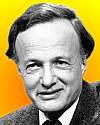 | Science is an enterprise that can only flourish if it puts the truth ahead of nationality, ethnicity, class and color. - John C. Polanyi, German-Canadian chemist and educator (born 23 Jan 1929).  |
 | I had fallen in love with a young man..., and we were planning to get married. And then he died of subacute bacterial endocarditis... Two years later with the advent of penicillin, he would have been saved. It reinforced in my mind the importance of scientific discovery... - Gertrude B. Elion, American pharmacologist (born 23 Jan 1918).  |
 | Nature creates curved lines while humans create straight lines. - Hideki Yukawa, Japanese physician and physicist (born 23 Jan 1907).  |
| Before you look at today's web page, see if you can answer some of these questions about the events that happened on this day. Some of the names are very familiar. Others will likely stump you. Tickle your curiosity with these questions, then check your answers on today's web page. |
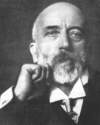 | Andrija Mohorovicic, born 23 Jan 1857, was a Croatian meteorologist and geophysicist who discovered the boundary between the Earth's crust and mantle, a boundary now named the Mohorovicic discontinuity.
 How did he discover this boundary? |
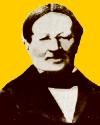 | On 23 Jan 1796, Karl Karlovich Klaus (a.k.a. Carl Ernst Claus) was born, a Russian chemist and biologist who, in 1844, discovered the last dense, inert, platinum-like metal element.
 Which element was discovered by Klaus? |
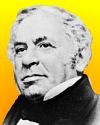 | Johann Lukas Sch�nlein (1793-1864) was a German physician whose attempts to establish medicine as a natural science helped create modern methods for the teaching and practice of clinical medicine. He coined the term hemophilia (1828). He was the first to use a certain instrument in conjunction with urine and blood analyses to diagnose disease.
 What instrument was he first apply to blood analyses? |
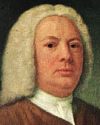 | William Caslon (1692-1766) was an English typefounder who created (1720-26) the Caslon typeface. He progressed from engraving gunlocks and barrels; making engraving tools, bookbinders' stamps and cutting type punches; to operating his own type foundry (1720). His new typeface became the most widely used of the 18th century, including in the American colonies.
 In the American his typeface was used for the first official printings of which documents? |
 | On 23 Jan 1960, a specially constructed bathyscaphe, the Trieste, descended 35,810 feet in the Pacific Ocean into Challenger Deep, the deepest point known to exist on earth, is near the island of Guam. The record has stood unchallenged for 40 years since their historic dive.
 What is the name of the ocean trench containing Challenger Deep? |
| On 23 Jan 1911, a scientist's nomination to the French Academy of Sciences, having already won one Nobel Prize (and whose work would later earn a second Nobel Prize), was nevertheless voted down by the Academy.
 Can you name this scientist? |
When you have your answers ready to all the questions above, you'll find all the information to check them, and more, on the January 23 web page of Today in Science History. Or, try this link first for just the brief answers.
Fast answers for the previous newsletter for January 22: Louis Paschen • fluorine • generating the microwaves used in that form of oven • design of threads on bolts • cyclotron • Andrei Sakharov. |
 If you enjoy this newsletter, the website, or wish to offer encouragement or ideas, please send feedback by using your mail reader Reply button. If you enjoy this newsletter, the website, or wish to offer encouragement or ideas, please send feedback by using your mail reader Reply button.
Your click on a StumbleUpon, Google+ or Facebook social button on the site webpages is also a welcome sign of appreciation. Thank you for using them. |
To find citations for quotations go to the corresponding webpage by clicking on the “quotes” balloon icon. Sources for the thumbnails appear on today's webpage with the corresponding item.
� This newsletter is copyright 2014 by todayinsci.com. Please respect the Webmaster's wishes and do not put copies online of the Newsletter � or any Today in Science History webpage. (If you already have done so, please remove them. Thank you.) Offline use in education is encouraged such as a printout on a bulletin board, or projected for classroom viewing. Online, descriptive links to our pages are welcomed, as these will provide a reader with the most recent revisions, additions and/or corrections of a webpage. For any other copyright questions, please contact the Webmaster by using your mail reader Reply button. |
--
If you do not want to receive any more newsletters,
Unsubscribe To update your preferences and to unsubscribe visit
this link 






 How did he discover this boundary?
How did he discover this boundary? 
 Which element was discovered by Klaus?
Which element was discovered by Klaus? 
 What instrument was he first apply to blood analyses?
What instrument was he first apply to blood analyses? 
 In the American his typeface was used for the first official printings of which documents?
In the American his typeface was used for the first official printings of which documents? 
 What is the name of the ocean trench containing Challenger Deep?
What is the name of the ocean trench containing Challenger Deep?  Can you name this scientist?
Can you name this scientist?  If you enjoy this newsletter, the website, or wish to offer encouragement or ideas, please send feedback by using your mail reader Reply button.
If you enjoy this newsletter, the website, or wish to offer encouragement or ideas, please send feedback by using your mail reader Reply button. 

Δεν υπάρχουν σχόλια:
Δημοσίευση σχολίου